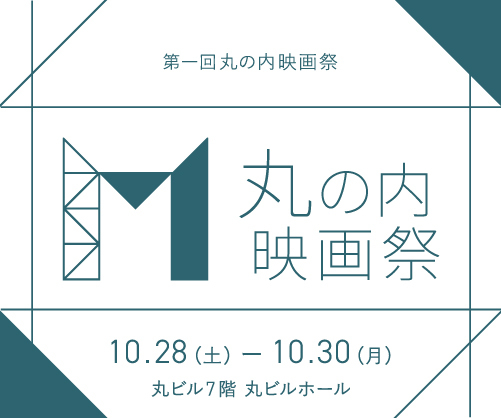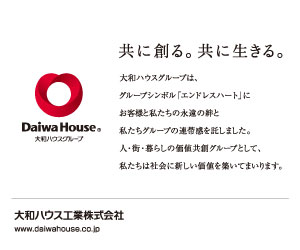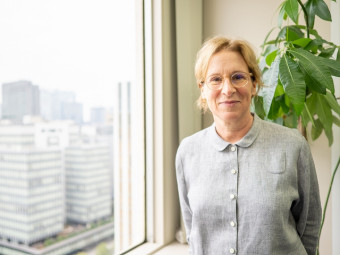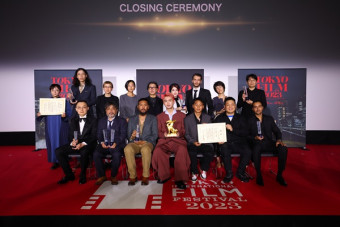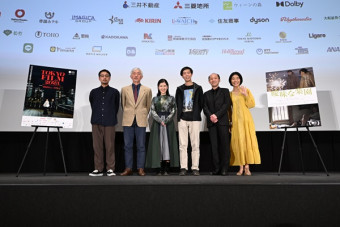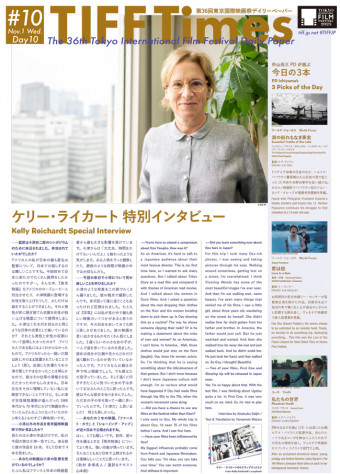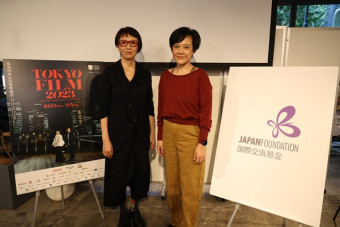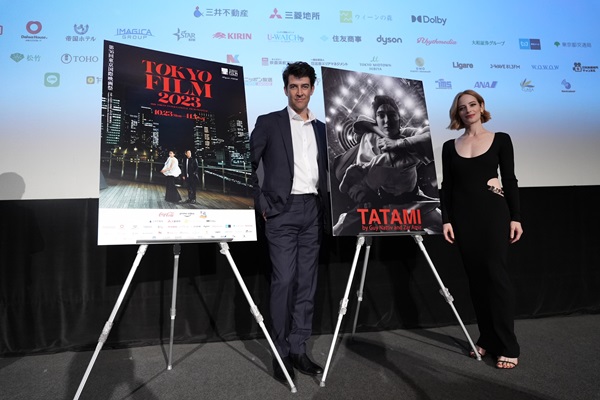
Few post-screening Q&As are as emotionally satisfying as the October 25 session for Tatami, a Georgia-US film screening in the Competition section of the 36th Tokyo International Film Festival. While most sessions are abbreviated by the practical necessity of interpretation, sometimes into more than one language, the guests in this case, were quick to elaborate on questions in their efforts to promote the film’s agenda. And it’s an agenda that the audience clearly embraced.
Producer Guy Nattiv, who is also the co-director of the film, and his wife, Jaime Ray Newman, who produced and also acted in the movie, had been discussing the impetus for the film and its vital message, before discovering that a woman in the audience, whom they’d never met before, had been a central figure in the production. But more on that below.
“This is a dream come true for us,” said Nattiv in his opening remarks, “because we’ve always wanted to come to TIFF, and it means so much that we can do it with a film whose origins are essentially Japanese.” Newman added, “The movie is in many languages, but we titled it Tatami as an homage to Japan and respect for a sport, judo, which originated in Japan. That respect is in contrast to what happens to the protagonist, Leila, who was not afforded respect.”
The film is inspired by an actual event that happened at the Nippon Budokan arena in Tokyo in 2018. An Iranian judoka, Saeid Mollaei, who was competing for the national team at the world championships, was told by his handlers to fake an injury so that he would not have to face an Israeli judoka. Though there is some evidence that Mollaei had done such a thing in the past, this time he refused, presumably because he had a friendly relationship with the Israeli he might have to fight. In the end, Mollaei quit the team and defected.
Tatami retells this story, but with a female judoka. As Nattiv explained, “That incident sparked a movement among Iranian female athletes [several years later], who were opposed to the regime because of the murder of Mahsa Amini (who died in police custody after allegedly violating the strict Iranian hijab/headscarf rule for women), and they took their hajibs off to oppose the regime. This action inspired some Israeli and Iranian filmmakers to come together to make a movie about these themes.”
In the film, the protagonist is an Iranian female judoka named Leila (Arienne Mandi), who is desperate to win the gold medal at the world championships in Tbilisi, Georgia. But when it becomes apparent that she may end up facing an Israeli judoka, the regime becomes nervous, since it’s possible Leila might lose to the star of Iran’s nemesis, and tells her coach, Maryam (Zar Amir), to make her withdraw. Maryam, once a champion who found herself under the same circumstances, did as she was told, since the regime offered her in return the head coach position for the national team. But Leila is adamant: she will fight until the end.
What makes Tatami such an extraordinary film is the way it combines the tension of a political thriller with the heart-stopping excitement of a sports film. “We did all the fight scenes in one week,” said Nattiv. “Arienne practiced judo with a world champion in Los Angeles for six months, but she was already a boxer. Her opponents in the film are actual world champions from various countries. We had a Georgian coach, who worked with the Egyptian national team, choreograph these scenes, and we used two cameras.”
Newman added, “We auditioned for the lead actor for a full year and saw several hundred women. It was difficult: we needed a brilliant actress who was imposingly physical and who could speak perfect Farsi. We were so lucky to find Arienne.”
They were also lucky to have Zar Amir, who plays the coach, agree to co-direct the film with Attiv. Amir, an Iranian exile who lives in Paris, won the Cannes Film Festival Award for Best Actress for her portrayal of a reporter investigating a serial killer in the movie Holy Spider. So she was already associated with the Iranian artistic community living abroad. Her contribution to Tatami, according to Nattiv was “essential.”
As Nattiv, who is Israeli-American, and Newman described how they tried to make the judo match scenes as realistic as possible, they mentioned that they even convinced two famous judo commentators into adding color by explaining the matches we see in real time for an imagined broadcast audience. When Newman mentioned their names, a woman in the audience suddenly exclaimed, “I think one of them, Chloe Cowen, is here in the audience,” and, in fact, she was. Even more improbably, Cowen said she had actually never met the director in person before.
But this made sense, since Tatami is at heart a feminist film. The judoka and all the officials (one of whom is played by Newman) at the Tbilisi tournament are women, and in the end all work together to save Leila from the male regime of Iran. The only sympathetic male character is Leila’s husband, who, upon learning what the regime has demanded, quickly scoops up their child and hightails it to the border, knowing that his wife will not back down (and insisting she shouldn’t) which means his family will be arrested.
“I couldn’t have made this film without a production team that was mostly female,” said Nattiv. “It’s really a film about the power of Iranian women.”
“And a husband who supports his wife unconditionally,” added Newman.
Q&A Session: Competition
Tatami
Guest Speakers: Guy Nattiv (Co-Director/Screenplay/Producer), Jaime Ray Newman (Producer/Actor)















